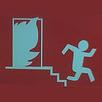|
Larry Mahnken and SG's | ||
|
| Replacement Level Yankees Weblog |

|
|
"Hey, it's free!" | ||
|
Larry Mahnken and SG's | ||
|
| Replacement Level Yankees Weblog |

|
|
"Hey, it's free!" | ||
|
Featuring: Larry Mahnken SG sjohnny TVerik Sean McNally Fabian McNally John Brattain  
The New York Yankees Vintage World Series Films DVD Set, available from A&E. Yankees Tickets World Series Tickets MLB All Star Tickets NFL Tickets Purchase your Onlineseats.com is your #1 source for MLB tickets, NY Mets Tickets, Cubs Tickets, Yankees Tickets, Red Sox Tickets, Giants Tickets, Astros Tickets, Angels Tickets, Phillies Tickets.
Buy all your MLB Tickets,
Laser Keyboard Brazil Flowers TickCo.com for premium New York Yankees Tickets Boston Red Sox Tickets Chicago white Sox Tickets A's Tickets Angels Tickets New York Mets Tickets St Louis Cardinals Tickets Cubs Tickets Dodgers Tickets Worldticketshop Football Tickets Concert Tickets Tennis Tickets Rugby Tickets Formula 1 Tickets "I'm not a pessimist, I'm an optimist. Things are really worse than I say they are." - Steve South

04/01/2003 - 04/30/2003 05/01/2003 - 05/31/2003 06/01/2003 - 06/30/2003 07/01/2003 - 07/31/2003 08/01/2003 - 08/31/2003 09/01/2003 - 09/30/2003 10/01/2003 - 10/31/2003 11/01/2003 - 11/30/2003 12/01/2003 - 12/31/2003 01/01/2004 - 01/31/2004 02/01/2004 - 02/29/2004 03/01/2004 - 03/31/2004 04/01/2004 - 04/30/2004 05/01/2004 - 05/31/2004 06/01/2004 - 06/30/2004 07/01/2004 - 07/31/2004 08/01/2004 - 08/31/2004 09/01/2004 - 09/30/2004 10/01/2004 - 10/31/2004 11/01/2004 - 11/30/2004 12/01/2004 - 12/31/2004 01/01/2005 - 01/31/2005 02/01/2005 - 02/28/2005 03/01/2005 - 03/31/2005 04/01/2005 - 04/30/2005 05/01/2005 - 05/31/2005 06/01/2005 - 06/30/2005 07/01/2005 - 07/31/2005 08/01/2005 - 08/31/2005 09/01/2005 - 09/30/2005 10/01/2005 - 10/31/2005 11/01/2005 - 11/30/2005 12/01/2005 - 12/31/2005 01/01/2006 - 01/31/2006 02/01/2006 - 02/28/2006 03/01/2006 - 03/31/2006 04/01/2006 - 04/30/2006 05/01/2006 - 05/31/2006 06/01/2006 - 06/30/2006 07/01/2006 - 07/31/2006 08/01/2006 - 08/31/2006 09/01/2006 - 09/30/2006 10/01/2006 - 10/31/2006 LINKS Yankees Sites and Columnists Nomaas.org General Baseball Sites & Columnists Rotoauthority.com The Book Blog - Playing the Percentages in Baseball(Tango, MGL, Dolphin) Yankees Blogs Almost Perfect Baby Bombers Baseball Mania Bronx Banter Dugout News Eephus Pitch Fire Joe Torre Blog Here Comes Number 27 High and Tight Lohud Yankees Blog No Sense Worrying Soft Hands The Sporting Brews The Stat Boy of the Empire Was Watching Yankees Chick Yankees Fans in Foreign Lands Yanks Blog Look what people have to say about Larry Mahnken's commentary! "Larry, can you be any more of a Yankee apologist?.... Just look past your Yankee myopia and try some objectivity." "Mr. Mahnken is enlightened."
"Wow, Larry. You've produced 25% of the comments on this thread and
said nothing meaningful. That's impressive, even for you."
"After reading all your postings and daily weblog...I believe you have truly become the Phil Pepe of this generation. Now this is not necessarily a good thing."
"you blog sucks, it reeds as it was written by the queer son of mike lupica and roids clemens. i could write a better column by letting a monkey fuk a typewriter. i dont need no 181 million dollar team to write a blog fukkk the spankeees"
"i think his followers have a different sexual preference than most men"
"Boring and predictable."
"Are you the biggest idiot ever?"
"I'm not qualified to write for online media, let alone mainstream
media."
This site is best viewed with a monitor.
|
Disclaimer: If you think this is the official website of the New York Yankees, you're an idiot. Go away. Friday, November 19, 2004
by Larry Mahnken
For the most part, a team's sucesses and failures have to be pinned on its players. It's the performance of the players that determines the outcome of a game, and there's little that managers and coaches can do that has a major impact on those performances. There are definite positive and negative effects to the decisions coaches make, but they are, in my opinion, much less significant that we would generally believe, and I would further go to say that they're less important than the random fluctuation of performances. For this reason, I believe that it's far more important for a manager to be a leader of men than a great strategist, and the best strategy a manager can often employ is to stay out of the way of what's happening on the field.
Thursday, November 18, 2004
by Larry Mahnken
The Yankees have been making the postseason every year for the past decade, but it's only been the past few seasons that they've started going nuts on the free agent market. The core of their championship teams -- Jeter, Williams, Pettitte, Rivera, Posada -- was mostly homegrown, and the bulk of the key players from outside the system were either accquired through saavy trades or signing them as second-tier free agents. The Yankees spent more money than anyone else, but they were spending that money one players they had accquired for reasons independent of money. To get Chuck Knoblauch they gave up Cristian Guzman and Eric Milton, both highly-regarded prospects -- and the Twins didn't have to dump Knoblauch, he was just sick of losing, and wouldn't shut up about it. They gave up David Wells for Roger Clemens, and while they certainly ended up on the better end of that deal, they didn't "buy" Clemens.
Tuesday, November 09, 2004
The Hardball Times Baseball Annual by Larry Mahnken
Internet Post of the Day by Fabian
"Buck and McCarver even spoke about his calm eyes leading the Yankees to victory"-NYYFans.com user in defense of Jeter's postseason.
| |||||||||